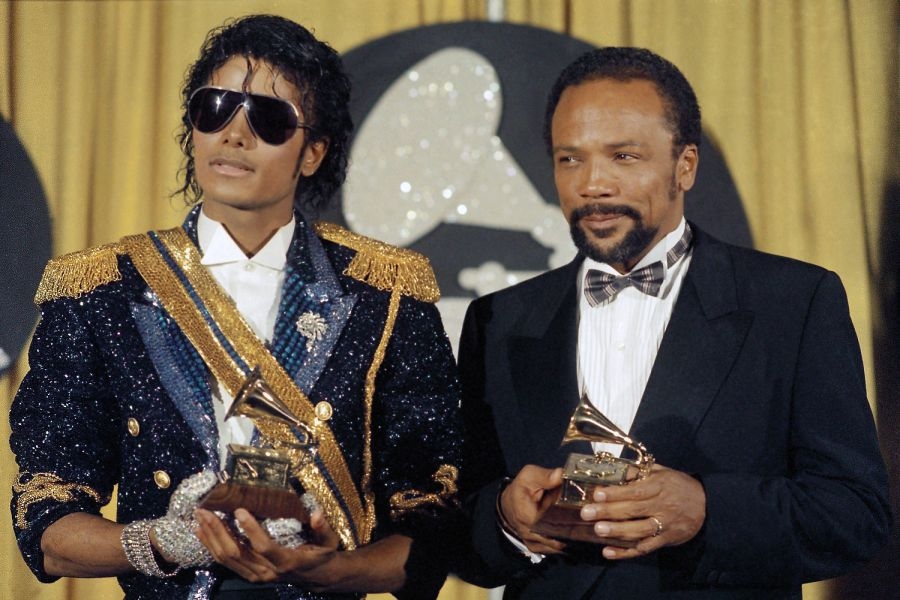Quincy Jones has been in the music business for 70 years and he can't quite say exactly how many works he's composed or albums he's produced — but he does remember distinctly the moment he discovered his passion.
Wearing a grey suit, maroon shirt and black tie and vest, the 84-year-old producer told a jury that seeing a piano in an office he'd broken into with his friends changed his life. "I wanted to be a gangster until I was 11," Jones said. But, in that moment with his fellow "baby gangsters," he said every cell in his body told him music is what he'd do for the rest of his life.
Jones is suing MJJ Productions, a company controlled by Michael Jackson's estate. He says he's owed tens of millions, his share of posthumous profits resulting from the exploitation of songs he produced. The producer met the King of Pop while working on The Wiz, and went on two produce his first three solo albums, Off the Wall, Thriller and Bad.
He considered 800 songs for Thriller, he told his attorney Mike McKool in a crowded courtroom Thursday morning. After all, finding songs is a producer's number one job. "A great song can make the worst artist in the world a star," Jones said, adding that making music requires extreme love, respect and trust. "I've never in my life done a record for money or fame."
Peppered in the questions about his producer agreements with Jackson were colorful bits of music history. (Vincent Price recorded his "Thriller" monologue in just two takes.) There were also a surprising amount of jokes. When McKool asked if Jones could see Jackson's signature on one of the exhibits, the producer quipped "Ray Charles could see that."
The mood shifted when Jackson estate attorney Howard Weitzman began his cross-examination by asking whether Jones realized he's effectively suing the artist himself. "I'm not suing Michael," Jones said pointedly. "I'm suing y'all."
When the questioning turned to the specifics of the contracts, the tension grew. Jones' attorneys argue his written agreements with Jackson clearly state that he's entitled to a share of licensing revenue when the songs he produced are used in films and other projects, while attorneys for MJJ argue the contracts make it clear Jones is only entitled to a share of record sales and anything he was paid beyond that was an act of kindness by Jackson.
Jones admitted he doesn't like contracts, and leaves handling the "legalese" to his lawyers — often signing an agreement having only seen the signature page.
Weitzman pressed Jones on the agreement, asking whether he feels entitled to a share of licensing even though MJJ's interpretation of the contracts means he's not legally entitled to it.
"Contract montract," said Jones. "If we made the record we deserve to get paid."
After discussion about how lucky the producer and artist were to work with each other, Weitzman turned to the music itself. He played Jackson's original demos of four songs, including "Billie Jean" and "Beat It," and then immediately followed with a clip of the final product.
Despite bobbing along to the music, Jones grew irritated.
"What's your point, Howard?" he asked. The point, although Weitzman didn't outright say it, was to show the jury the similarity between Jackson's pitch and the Jones-produced record in hopes that they'll attribute a larger percentage of the creation to the artist.
Jones says that Jackson "absolutely" did right by him creatively, but whether he did financially is open to debate. When asked why he didn't complain about his share of profits while the singer was alive Jones said, "I cared more about him as a human being than about the money."
Both sides rested Thursday afternoon following Jones' testimony. Closing arguments are scheduled for Monday morning.
This story originally appeared on THR.com.








